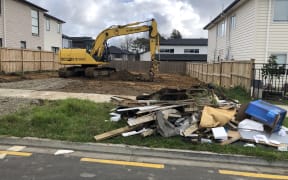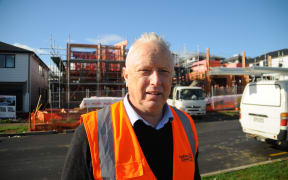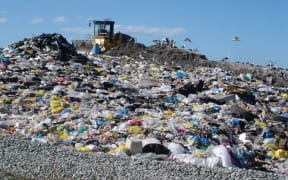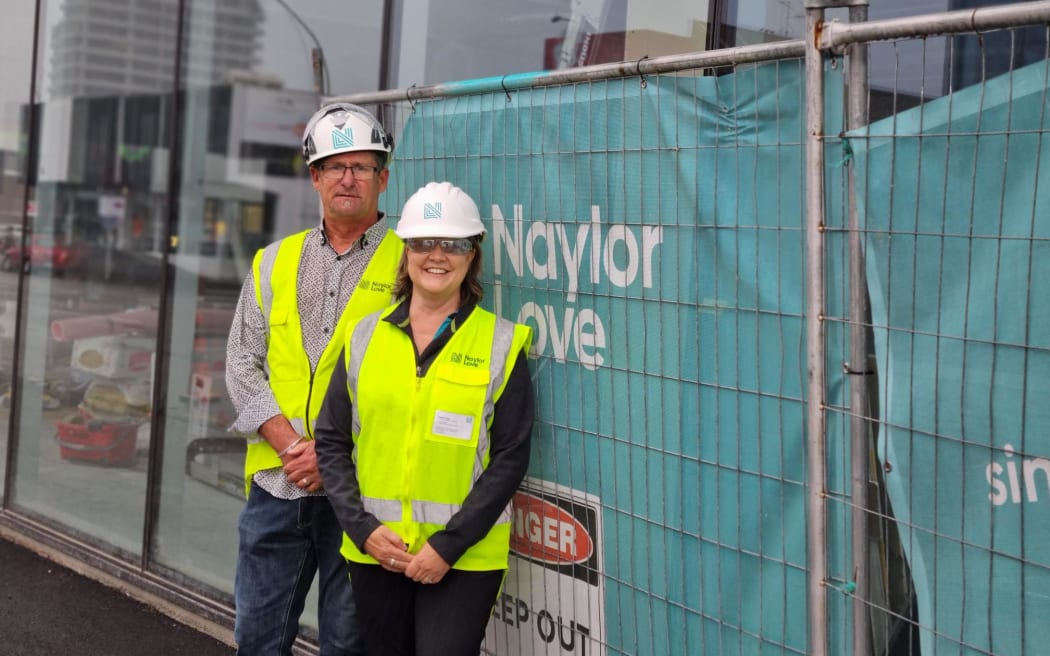
Project Manager Chris Haswell and Waikato Environmental Manager Stephanie Mayer from Naylor Love. Photo: RNZ / Libby Kirkby-McLeod
Hamilton City Council did something simple but radical in their 2019 Waste Management and Minimisation bylaw. The council made it mandatory for anyone applying for a building consent to submit a site waste plan.
Aotearoa New Zealand has a landfill problem. The ones we have are starting to overflow, and a squeeze on new land - along with objections from residents near proposed sites - make it difficult to build new ones.
Around 50 percent of waste comes from the building and demolition industry, 90 percent of which could be reused, recycled, or returned to the supplier.
A site waste plan must outline the different types of construction or demolition waste generated by a site, and how they are going to be dealt with.
The plan also requires the principal contractor to record what actually happens to the waste and report back to the council, explaining if it differs from what was estimated and planned for.
There is currently only one other council, New Plymouth, who also have this requirement.

Hamilton City Council’s Sustainable Resource Recovery Unit Director Tania Hermann. Photo: RNZ / Libby Kirkby-McLeod
The council's Sustainable Resource Recovery Unit Director, Tania Hermann, said the site waste plans are an important tool to help change building behaviour.
"A lot of the construction companies are designing out waste at the beginning of their plans, rather then having the waste go to landfill at the end."
Hermann said the building and demolition sector in Hamilton has reacted positively to the change, understanding that it can bring them savings too.
Chris Haswell is the project manager for Naylor Love, the firm building the new Blood Donor Centre in central Hamilton.
He said they had a range of waste on the site including plastic, paper, concrete, timber, metal and lots of soil.
"We took 5500 cubic metres of fill from the basement carpark. All of which, bar about 300 cubic metres, was onsold. Very little went to landfill."
Naylor Love's Waikato Environmental Manager Stephanie Mayer is helping to drive waste management at the company's Waikato projects.
She said the average building site only diverts 17 percent of its waste; Naylor Love is aiming for 80 percent.
"We think it's possible, and now is the time.
"We can't just sit back and let things happen to us, we need to be leading the charge because we know a large percentage of what goes into the landfill is construction and demolition waste and we can't just keep it going like that."
On some sites waste sorting can happen where the project is taking place. However, tight city sites sometimes only have room for one skip.
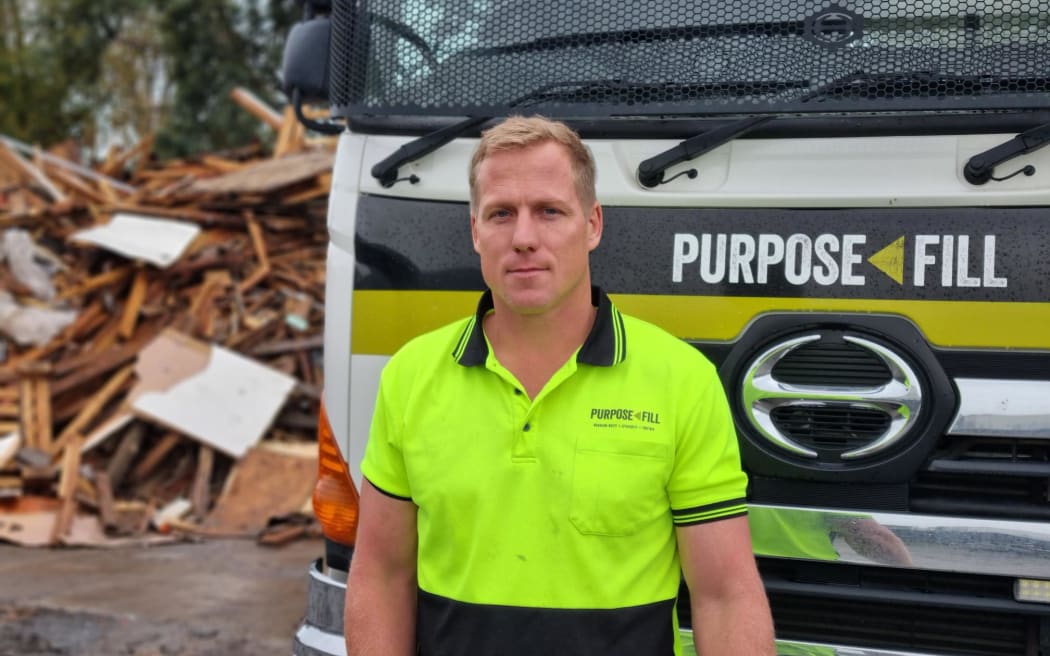
Purpose Fill Director Paul Gerritsen. Photo: RNZ / Libby Kirkby-McLeod
Purpose Fill is a Waikato skip provider that provides a skip which is then taken to their depot where they divert recyclables for reuse.
Director Paul Gerritsen said they are currently able to recycle about 30 to 50 percent of the content from the skips they collect.
Plastics are particularly a problem to recycle, while scrap metal, concrete, wood and plasterboard are more easily able to be diverted.
Gerritsen said that many builders are still driven mostly by economics and sending everything to landfill is still the cheapest option.
"It has been difficult up to this point to get people to pay more for recycling. We are competing against really big companies that own landfills, and landfills are comparatively very cheap to operate if you are just putting everything in a hole in the ground."
Hermann said site waste plans are helping to change this attitude and reduce the environmental impacts of construction waste.
The Hamilton council does have powers to revoke or impose fees on anyone who does not comply with their site waste plan. But, so far, they have not had to use them.
